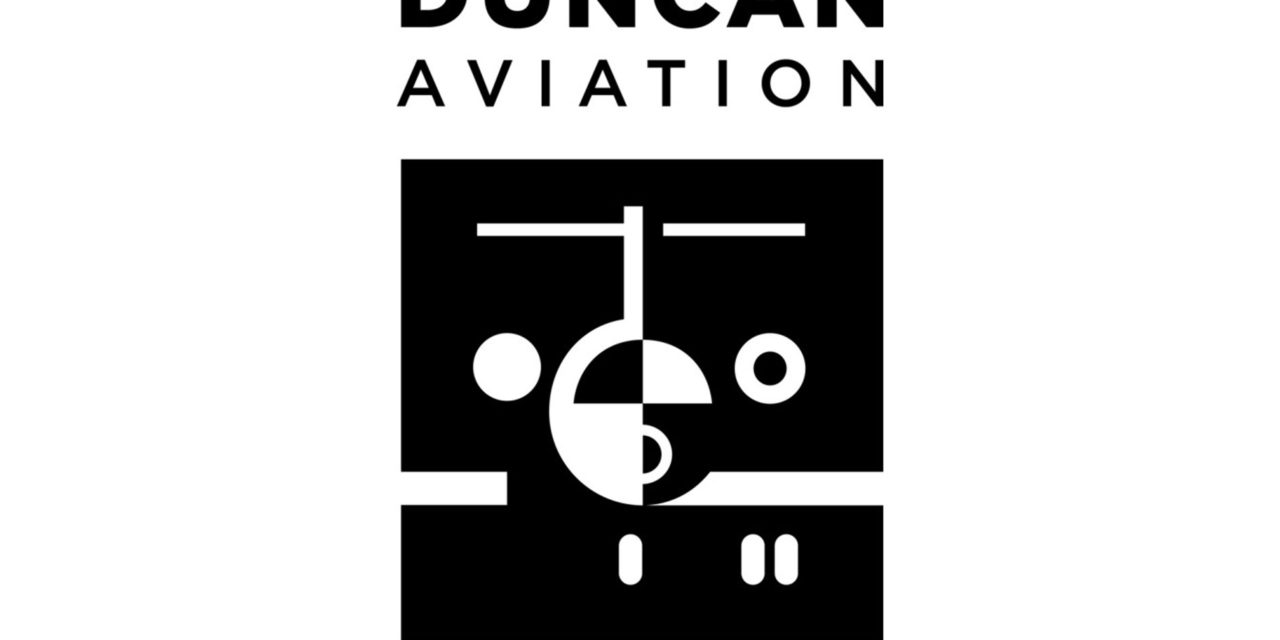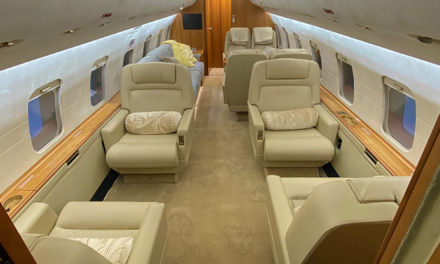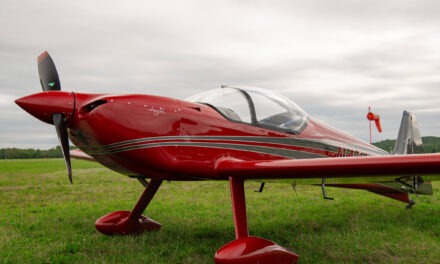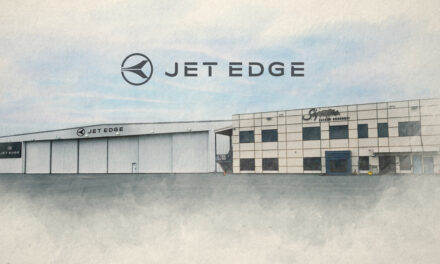Duncan Aviation announced that it has completed an industry first installation of the Honeywell Primus Elite (DU-875 displays) in an Embraer Legacy. The Legacy’s owner is a long-time customer of the Duncan Aviation Houston, Texas, Satellite Avionics Shop and agreed to be a launch customer for three new Supplemental Type Certificates (STCs). “We bundled a package with Honeywell for a turnkey solution to update the Legacy’s avionics suite. This created an opportunity for Duncan Aviation to develop three new STCs,” says Houston Satellite Manager Mark Winter. “After looking at the time frame, our customer decided to have the work done so it coincided with a major inspection and complete exterior paint, so we moved the entire project, including the avoinics installation team, from Houston to our Lincoln, Nebraska, repair facility.”
The DU-875 upgraded electronic displays in the cockpit because the old screens had been discontinued, and the new screens provide additional charts and graphical weather information. In addition to the new STC for the DU-875 and Primus Elite (ST01861WI), Duncan Aviation and Honeywell Aerospace also completed two other STCs for the Embraer Legacy, covering the installation of the following:
- Upgrade of the Honeywell FMZ-2000 FMS to FMZ-2010 (ST01856WI) for Localizer Performance with Vertical Guidance/Wide Area Augmentation System (LPV/WAAS) capabilities.
- The Honeywell CMU MKIII (ST01858WI), which brought the aircraft into compliance for Future Air Navigation Systems (FANS 1/A+). FANS is mandatory for flying in the North Atlantic Tracks (NAT).
One of Duncan Aviation’s existing STCs was used to install the Honeywell MK V Enhanced Ground Proximity Warning System (EGPWS) Runway Awareness and Advisory System (RAAS) and Smart Runway/Smart Landing equipment. An STC developed by CMD Flight Solutions was used to install the Honeywell Primus II RCZ-8XX transponders, bringing the Legacy into compliance with the FAA’s mandate for Automatic Dependent Surveilance- Broadcast (ADS-B) Out a full two years before the midnight deadline on December 31, 2019.
“I’m proud of my crew for all of the sacrifices they made to get this project completed in the necessary time frame. In spite of unforseen circumstances, such as a hurricane hitting Houston while we were away from our homes and families, they did an excellent job. We asked a lot of them, and they prevailed,” says Winter. “Not only that, but also I’d be remiss if I didn’t mention the Duncan Aviation Engineering and Certification Department. Certification Coordinator Aaron Lane and his team worked with the Duncan Aviation Organizational Designation Authorization (ODA) and pulled this all together. The team pushed through milestones and got everything done—again—in spite of challenges along the way.”









